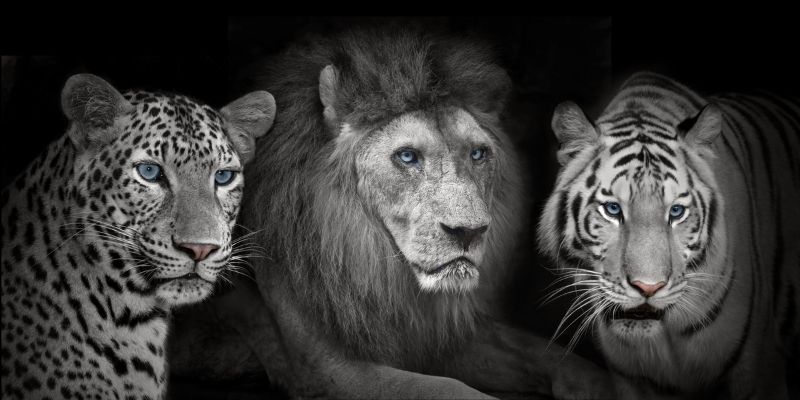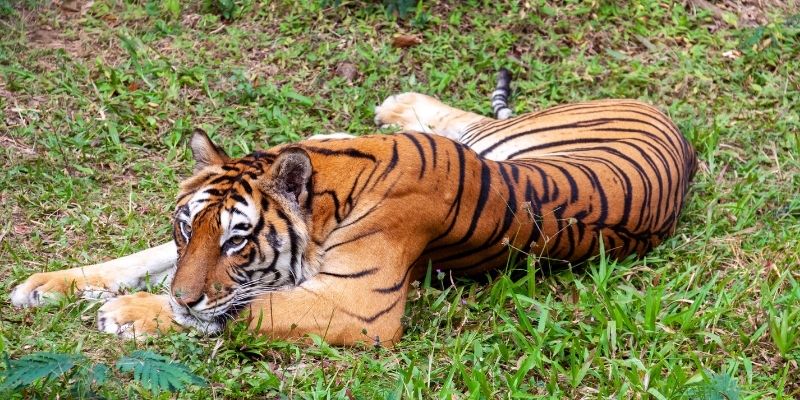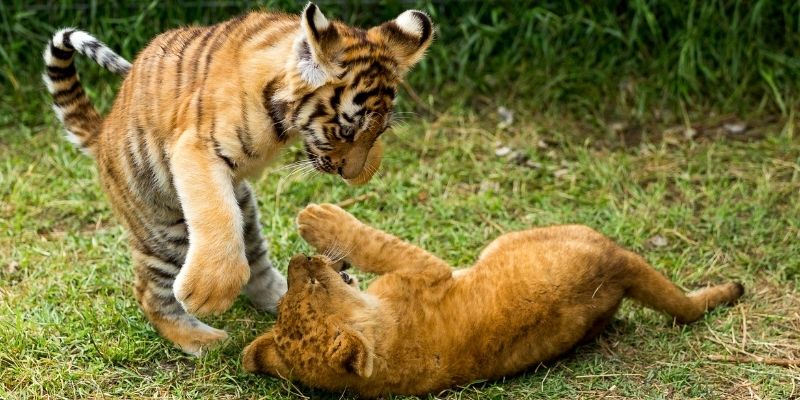How Can Big Cats Studies Lead to an Exciting Career?.
How Can Big Cats Studies Lead to an Exciting Career?
The animal kingdom is full of fascinating creatures that are not only there to be admired, but also play a vital role in ecosystems. There are plenty of species and groups that dominate the animal kingdom, with a significant one being big cats. There are five main big cat species, including the tiger, lion, leopard, jaguar, and snow leopard.
If you have a passion for big cats and are interested in wildlife conservation, then enrolling on a big cats studies course is a great way to kickstart a career in this sector. You will delve into the principles of animal welfare, as well as the behavioural and physiological aspects of big cats species. Continue reading to learn more about big cats courses and the career options available to you.

What is the Study of Big Cats Called?
There is no exact term for big cats studies, but felinology refers to the study of all cats, both wild and domestic. A felinologist will study the most important aspects of a cat, including their genetics, physiology, and anatomy, as well as how they breed. If you are keen to gain a solid understanding of the entire feline kingdom, then felinology is a suitable path.
However, if you want to solely focus on big cat species, then studying big cats courses will give you the information you need to embark on a rewarding career in this field. Before exploring animal welfare and wildlife conservation, you need to be able to identify the main species of big cats, which include:
- Lion (Panthera leo)
- Tiger (Panthera tigris)
- Jaguar (Panthera onca)
- Leopard (Panthera pardus)
- Snow Leopard (Panthera uncia)
While all five big cat species have differing features, they also share many qualities. For example, most are large in size and they possess an ability to roar. This is because they have a specialised larynx and a hyoid apparatus, which is a part of the throat that allows for them to roar.
It is important to note, though, that the snow leopard possesses more of a snarl than a roar. Also, across the varying big cat species, there are differences in skull size and structure, as well as their lifecycle and reproductive systems.
How Do You Become a Big Cat Specialist?
One of the many great things about pursuing a career in big cats is that there are various routes you can take to achieve your career goal. It is not a prerequisite to have a degree to work in animal welfare involving big cats but studying zoology or a related degree wouldn’t hurt!
Holding accredited qualifications is always beneficial when applying for roles in the animal welfare sector, even though it is not always necessary. However, having specialist knowledge and qualifications will put you ahead of candidates in the job market.
You can gain a solid understanding of big cat species and animal welfare by studying Carnivore Studies: Big Cats Level 3 Award (RQF). This big cats course covers a wealth of information about the big cats species, exploring their evolution, behaviour, and biology. You will delve into conservation efforts and principles, as well as the welfare needs of big cats living in captivity.
The course is split into two units, of which we have outlined below:
The Diversity of Carnivores: Big Cats
Upon completion of this unit, you will:
- Understand the evolutionary process of carnivores
- Know the behaviours of carnivores
- Be able to explain the diversity of carnivores within the animal world
- Understand the biological aspects of carnivores
The Principles of Carnivore Care and Conservation: Big Cats
Once you have completed this unit, you will:
- Know the principles of animal welfare when it comes to carnivores
- Understand how to enhance the health of captive carnivores
- Be able to implement measures that improve the welfare of carnivores
- Know the various principles of carnivore conservation
To achieve your Level 3 Award, you will have to pass a series of in-depth theory assessments, which will test the skills and knowledge you have gained from the units. If you are keen to pursue a career working with big cat species, then this qualification will help you get there. It is also advisable that you gain some level of work experience with big cats, whether that be through volunteering or paid work.

Where Can I Enrol on Big Cats Studies?
Stonebridge Associated Colleges is one of the UK’s leading distance learning providers, delivering more than 650 courses, including big cats courses. You can embark on big cats studies by simply enrolling online. The beauty of learning with us is that you can complete your studies from the comfort of your own home. This is because everything you need is online via our industry-leading digital platform.
There are many benefits to enrolling on big cats studies with Stonebridge Associated Colleges, including the following:
- Flexible learning – Our online big cats courses enable you to study at your own pace, so you can fit studying around your existing commitments
- Learn anywhere – You can study from the comfort of your own home! All you need is a stable internet connection and a laptop/computer
- 24/7 access – As soon as you enrol on our big cats courses, you will be given unlimited access to the course materials you need
- Tutor support – Your dedicated tutor will mark your assignments and provide feedback while also providing support
- Student portal – Our industry-leading online platform will have everything you need all in one place
What Career Options Involve Cat Species?
You can use the knowledge you gain from our big cats courses and apply it to the working world via an array of different roles. Generally, when you work with big cat species, your main priority will be to enhance their lives. To achieve this, you may have to take care of multiple tasks, such as:
- Feeding
- Cleaning habitats
- Monitoring and recording behaviours
- Assisting with pain relief and injury recovery
There are a range of careers that involve big cats, including in the animal welfare and wildlife conservation sectors. You may want to consider pursuing one of the following roles:
- Zookeeper
- Big Cat Conservationist
- Wildlife Vet Assistant
- Zoologist
- Big Cat Educator
- Big Cat Safari Guide
Please note that for some of the roles above, you may require specific qualifications, so make sure you research the requirements before embarking on this career path.

What Does a Big Cat Conservationist Do?
Plenty of people interested in big cats studies choose to go down the wildlife conservation route. The sad reality is that while big cat species continue to dominate the animal kingdom, their lives are endangered. Poaching and habitat destructions are the leading threats to big cat species, which is why many people opt to progress into wildlife conservation.
Individuals who work in big cat conservation often get involved in conservation programmes, which also involve plenty of volunteers and researchers. Groups travel to varying parts of the world that carry large populations of big cats, monitoring the animals and implementing sustainable practices.
Some individuals also work in big cat sanctuaries, which are designed to provide a safe habitat for big cat species to live in. Wildlife conservation is vast and wide, so if you gain qualifications in big cats studies, then you can begin exploring your options.
Kickstart Your Career!
If your career ambition involves working with big cat species, then enrol on our dedicated big cats courses! As soon as you enrol, you will be able to begin your learning journey. To find out more information, speak to one of our Course Executives by calling 0121 392 8288. You can also contact us online to discover how to begin your new career.




